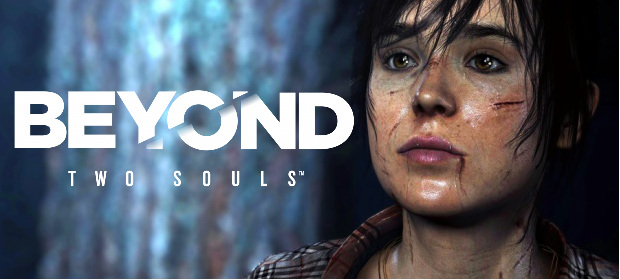Cinema’s influence on video games has grown exponentially over the course of the past ten years. French developers Quantic Dream have embraced this ever since their 2005 release Fahrenheit, and then went further with the divisive Heavy Rain. The next logicial step for the developer was to cast two big Hollywood stars in the primary roles of its PlayStation 3 swansong and see out the generation with some science-fiction bombast. But as one of the main proponents for more emotional narrative in video games, writer David Cage isn’t just going to serve up explosions and fight scenes, and over-saturate the viewer with violence.
I say “viewer” rather than “player”, simply because there are definitely points in Beyond: Two Souls where you’re a passive participant, which, of course, is a common thread in the studio’s titles. However, when Beyond allows you to engage with its world and its characters, just like Heavy Rain before it, it becomes one of the most engrossing gaming experiences, and may even change opinions on what Cage is attempting to achieve.
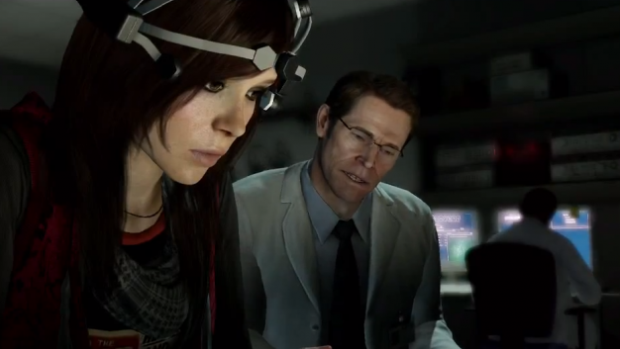
Taking place over approximately twenty years, Beyond: Two Souls tells the story of a young girl named Jodie Holmes who is born with a spirit tethered to her. Called Aiden and independent of thought, his inexplicable appearance at birth sees Jodie going into the care of the Department of Paranormal Activity (DPA), who are researching the apparition’s behaviour. Both Professor Nathan Dawkins and Cole Freeman attempt to figure out the potential of the phantom, whilst acting as surrogate fathers to Jodie.
Akin to a Tarantino film, Beyond’s story goes back and forth through Jodie’s life, unravelling the mystery of her connection to Aiden in a non-sequential fashion. Jodie is a normal woman who has been forced into an abnormal life, and who wants more than anything to be left alone to fit in with the rest of the world. Quantic Dream’s choice of a non-sequential chapter structure truly benefits the narrative, reflecting the chaotic cadence of Jodie’s existence. Even though there’s a danger of this method resulting in something disjointed, Beyond creates intrigue, by first giving you the answer, and then informing you of what the question was in the first place.
The pacing is wonderful, because the you’re never subjected to too much commotion, or too much of the mundane. Certain chapters see you completing banal tasks like cleaning the house and cooking the dinner, while the following may place Jodie in an African country with a gun in her hands. However, Quantic Dream have a special gift for making the boring surprisingly absorbing. The gameplay is very similar to their past work, with quick-time events comprising a large amount of the action, but there are large sections where you can freely explore an environment and interact with objects and people.
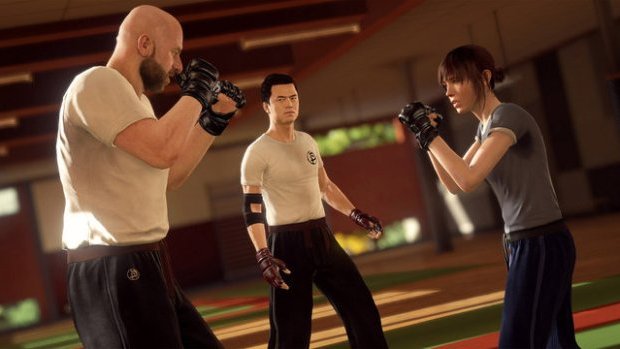
Combat QTEs are slightly different, in that time slows down to a more manageable pace and there are no on-screen button prompts. Instead, you must move the analog stick in the direction that Jodie is throwing her punch or kick, for example. The ambiguity of specific camera angles can lead to some frustration when you move the stick in what happens to be the wrong direction, but those instances are minimal.
Of course, Jodie isn’t alone in her journey, as the symbiotic Aiden also plays a pivotal role. Upon pressing Triangle, you are transplanted into the floaty, first-person view of the paranormal entity. Aiden isn’t bound to human restrictions like Jodie is, and can perform feats of varying importance such as knocking over a chair, or opening doors. Similarly to Jodie, Aiden can’t interact with every object in a given area; instead, items of interest are highlighted with a blue dot. By holding L1 and moving the analog sticks in the desired direction, Aiden can not only perform menial tasks, but can also heal the sick, kill someone (if needs be), or take control of their body. Due to the fact that he and Jodie are tied together, you can’t stray too far from her – also, some walls are annoyingly ghost-proof.
Beyond is most certainly a dual-protagonist story, as Aiden’s importance can’t be underplayed. In both gameplay and in plot, the mute character is essential. He is, however, tricky to control. As this bodiless soul, navigating through areas can be awkward and will bother many because his movement is loose and quite flimsy. Many times, I lost my bearings with the spectre and had to reassess the situation before carrying on because I got lost. Over time, you will no doubt get used to it, but in the early hours of the narrative it can feel inaccessible.
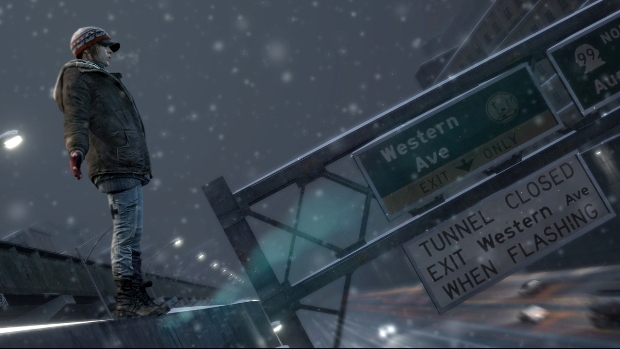
It’s a joy to see the relationship between the two lead characters unfurl, though. Whilst Aiden can’t speak, Jodie and the attached spirit have an unbreakable bond with one another. Aiden does a lot for Jodie, but there are occasions where he takes matters into his own hands and disregards her orders. One of the reasons why this is such a powerful twosome, though, is because of the performance of actress Ellen Page as Jodie Holmes.
Much has been said about the Hollywood infusion in Beyond: Two Souls and, sure, it could be argued that regular voice actors could have done the jobs of Page and Willem Dafoe (Nathan Dawkins) just as easily, but the pin-point delivery of all the primaries makes it hard to imagine anyone else in those roles. The Dawkins character is a timid soul and his lines need to be said with such care and precision, and Dafoe brings that in spades. In fact, there are very few weak players in what needs to be a strong and diverse cast.
It must also be said that this is the best work of David Cage’s career. For all of the positives in Heavy Rain, its plot fell flat at crucial moments with glaring holes that anyone could see. However, Cage has crafted a story here that, for all intents and purposes, takes the player through a cavalcade of emotions. Sometimes the fantastical element is pushed to its very limits but, barring the rare incident, it doesn’t veer into the realm of the absurd.
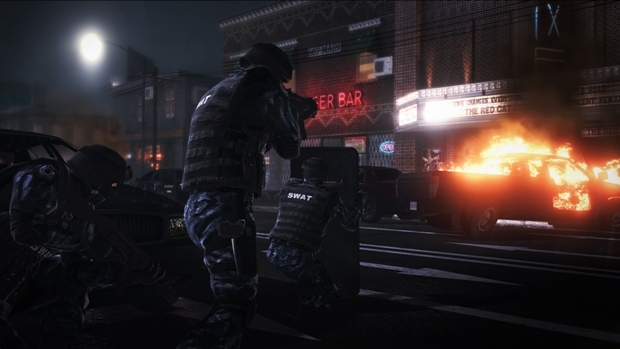
VERDICT: It’s quickly becoming the passé thing to say, but as we prepare to retire our current-gen systems to make way for the new crop in a month’s time, developers keep on delivering stellar games that verge on some of the best we’ve seen in years. 2013 has undoubtedly been one of video gaming’s greatest years, and Beyond: Two Souls can stand proudly beside the plethora of exceptional titles released over the last twelve months.
It has its faults, but the overall package is something that will be spoken about for years to come. A sci-fi epic that Hollywood could only dream of putting on the silver screen, Beyond’s strength is in its ability to engage you with its world, with even the most simple of activities. Ellen Page has given the performance of her life and David Cage has penned the best script of his. When AAA releases are serving up so much similarity, Quantic Dream buck the trend and offer something different. Don’t put your PlayStation 3 back in its box just yet, or you’ll miss the studio’s biggest triumph to date.

SUPERB. This is the mark of greatness, only awarded to games that engage us from start to finish. Titles that score 9/10 will have very few problems or negative issues, and will deliver high quality and value for money across all aspects of their design.


